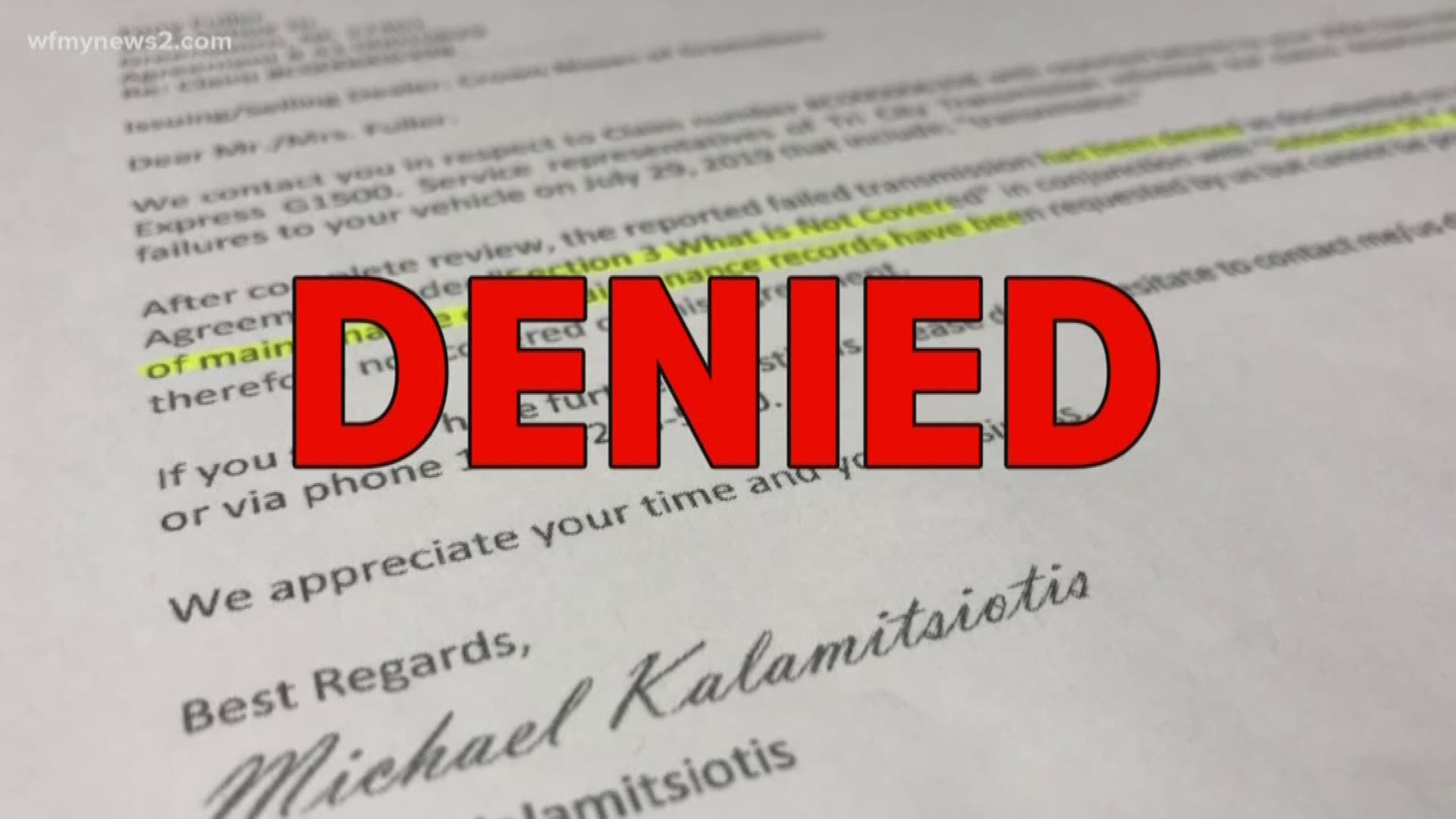GREENSBORO, N.C. — When you own a business, you often try to protect yourself against potential problems. So when Tony Fuller needed a van for his cleaning service, he made sure to buy an extended warranty.
“I bought the warranty because the van was old but it was all I could afford,” said Fuller.
The warranty was an insurance policy of sorts in case the van broke down and needed repairs. Fuller wanted to make sure a costly repair bill didn’t cripple his business.
“I can’t afford to have an unexpected bill, I need to pay my employees,” said Fuller.
The old van was doing surprisingly well although Fuller and his employees didn’t use it that often.
“It was doing great, working fine,” said Fuller.
With only a few hundred miles left on the warranty, Fuller received a call.
“It was one of my employees telling me the van stopped running,” said Fuller. He had it towed to a repair shop and was told the transmission needed to be replaced.
Fuller reached out to the warranty company and an adjuster came out.
“When the guy from the warranty company come look at it, he said I’m going to tell you right now we going to decline this warranty,” said Fuller.
The warranty company told Fuller the claim was denied because he could not prove the van was properly serviced. Fuller provided two oil change receipts, but the claim was still denied.
Fuller paid for a new transmission himself but reached out to our Call 4 Action Team to see if we could help. We reached out to both the dealership and the warranty company. We provided copies of the receipts again and asked several questions as to why the claim was denied.
The warranty contract did include language that the owner needed to keep the car maintained and show proof of service. Fuller was able to provide those receipts, but the warranty company initially deemed it wasn’t enough.
After we got involved the company reached back out to Fuller, “They call me and let me know they are going to pay for the transmission,” said Fuller. “News 2 is the bomb.”
While Fuller did everything right in this situation, it is important to read the fine print in a warranty agreement and ask questions upfront. As Fuller discovered, having those receipts ended up being critical in the warranty company eventually accepting the claim.
“They never would have settled if I didn’t have those,” said Fuller.

